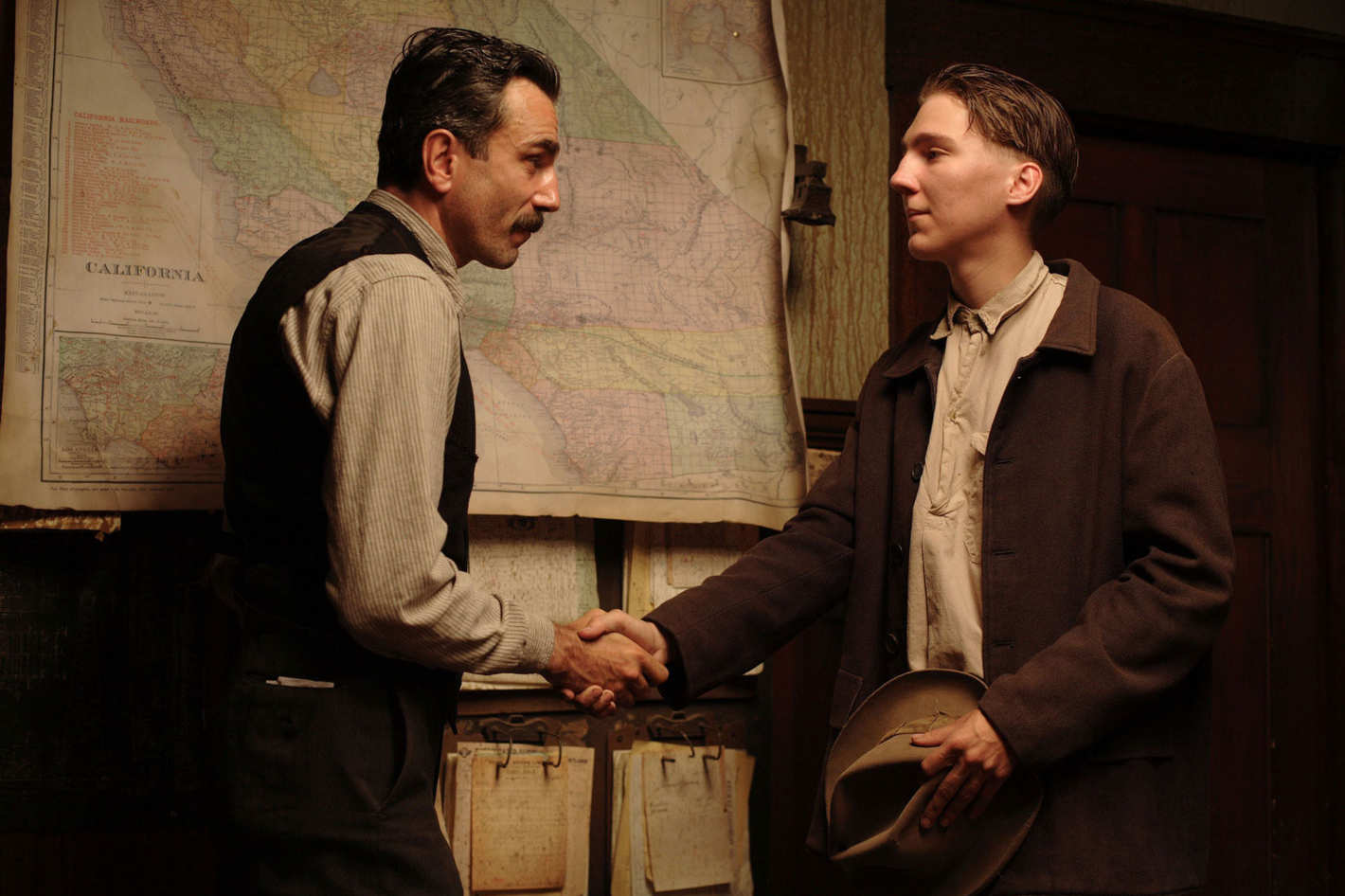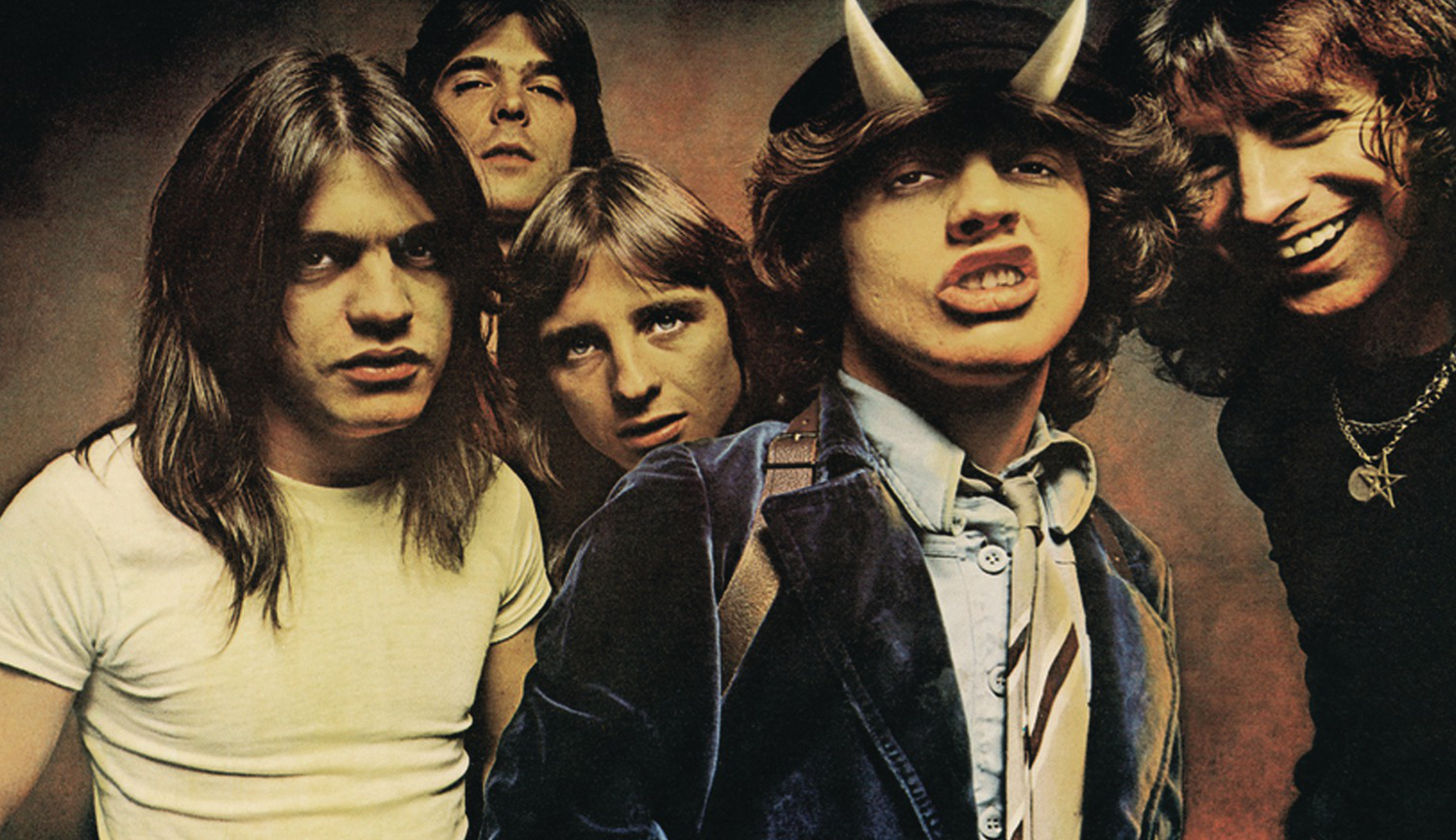There Will Be Blood needs no defense as a modern cinema classic. It came out ten years ago today, and there hasn’t quite been a film since which measures up to its ambitions in encapsulating the life of as troubled and complex a character as Daniel Plainview. In fact, the closest companion piece that I can think of would be the grandfather of cinema as we know it, Citizen Kane. However, whereas Charles Foster Kane is a sympathetically tragic figure in his descent into greed and madness, Daniel Plainview has no claim to a tragic descent, which might just make him the sadder figure of the two, and perhaps quintessentially more American.
In an extended wordless opening, we’re introduced to Daniel Plainview (Daniel Day-Lewis) as a prospector who discovers and makes a name for himself as an oil man. During one of his early operations, one of his employees is killed while down in the oil well, and he takes the man’s son on as his own. Now, this at first seems like a benevolent act, but the very first words we hear from Plainview’s mouth are about his oil business is a family business and that his son, H.W. (Dillon Freasier), is his ten-year-old business partner. Affection does not define their relationship, nor does an honest acknowledgment of H.W.’s true parentage. Instead, H.W. is a pawn for Daniel Plainview’s economic ambitions, a demonstration of his humanity to his investors and the communities that he exploits.
This is why it’s such a complex and heartbreaking tangle of emotions when H.W. suffers permanent hearing loss in a well explosion. The explosion itself is a sign of great economic potential for Daniel, but it has made H.W. more of a burden than an asset. When a man claiming to be Daniel’s brother shows up to connect with his lost relation, H.W. becomes superfluous, so Daniel sends him away to a school for the deaf, abandoning him on a train without telling him of his plans and pursuing the opportunities this new family relationship could bring him. It’s only when his supposed brother turns out to be an impostor that he brings H.W. back, but the damage has been done and it’s obvious that even though Daniel is H.W.’s only parental reference point, Daniel has never had any intention to be anyone’s father, only an opportunist.
And if that opportunism has one impediment, it’s in the religious fervor of Eli Sunday (Paul Dano), the son of a ranch owner whom Plainview pressures into selling his oil-rich land. If Plainview has a grip on the economic prosperity of the Sunday Ranch and nearby town of Little Boston, Eli has an equal grip on the hearts and minds of the town’s religious flock. Both Plainview and Eli recognize each other as profiteering grifters, selling minor economic side effects and eternal salvation, respectively, in order to develop greater power and profit for themselves. The tension between them is about as apt an encapsulation as one can get of the competition between capitalism and evangelical fervor for the heart of the American people, and when it culminates in an attempt at reconciliation by Eli once he believes he has something to gain from Plainview, Plainview kills his rival in a rage. He destroys an opportunity at profit, and in fact visits likely legal consequence upon himself for the cathartic act of murdering the biggest thorn to ever have been stuck in his side.
And while this is a fairly surface-level reading of Paul Thomas Anderson’s epic character study, Daniel Plainview is much more than an avatar for American capitalism. He is a man driven by greed and profit, regardless of the collateral damage it visits upon those closest to him, and consequently he is a lonely man. The final scenes of the film take place in a lonely mansion, a testament to Plainview’s economic success and how that does not amount to a successfully-lived life. Eli is the closest thing to a colleague that he can claim, but his hatred for Eli is as much a frustration with Eli’s efforts as it is a hatred for his own inhumanity. The tragedy of Daniel Plainview isn’t that he fell from grace, but that he never understood what grace was to begin with, that his pursuit of the American Dream was in fact a route to his own damnation, and the one symbol of salvation, the promise of heavenly forgiveness, is as much of an illusion as he is. This is a small part of what makes There Will Be Blood such a powerful piece of cinema, and one of the greatest films of recent memory. Ten years is a small milestone for a film as impactful and prescient as this one, and this will be a film that endures as an encapsulation of the tragedy of American success.













